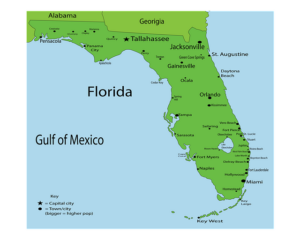Denmark has sparked a significant debate by proposing a controversial change to its abortion laws. The country intends to lower the age at which individuals can undergo abortions without parental consent to 15 years old. This proposal has raised various concerns regarding the rights of minors, parental involvement, and the potential consequences of such a policy shift. As the discussion unfolds, stakeholders from different perspectives closely examine the potential implications of this proposed change.
The Proposed Change and its Implications: Denmark’s proposed change would allow 15-year-olds to access abortion services without the need for parental consent. Currently, Danish law requires minors under the age of 18 to obtain consent from at least one parent before undergoing an abortion. The proposed shift aims to grant greater autonomy to young individuals in matters of reproductive health. However, it also raises questions about the potential psychological, emotional, and medical implications for young girls, as well as the role of parents in decision-making processes.
Balancing Autonomy and Parental Involvement: Lowering the abortion age without parental consent brings to the forefront the challenge of balancing autonomy and parental involvement in sensitive healthcare decisions. Advocates argue that it empowers young individuals, particularly those in difficult or abusive family situations, to make choices regarding their reproductive health without fear of reprisal. However, critics express concerns about the potential psychological and emotional impacts on young girls and the potential strain on parent-child relationships.
Legal and Ethical Considerations: The proposed change in Denmark’s abortion laws has legal and ethical implications. It prompts discussions about the rights of minors, the role of parental consent in healthcare decisions, and the boundaries of personal autonomy. Some argue that lowering the abortion age without parental consent aligns with international standards of individual rights, while others emphasize the importance of parental guidance and protection of minors’ best interests.
Psychological and Emotional Support: One of the key concerns surrounding the proposed change is the availability of sufficient psychological and emotional support for young individuals facing the decision of abortion. Critics argue that 15-year-olds may lack the necessary emotional maturity and understanding to make such significant choices independently. Proponents stress the importance of comprehensive reproductive health education and accessible counseling services to ensure informed decision-making and emotional well-being.
Impact on Public Health and Society: The proposed change also has broader implications for public health and society. Lowering the abortion age without parental consent may affect healthcare providers’ obligations, necessitating further training and support in providing age-appropriate counseling and care. Societal attitudes and the overall discourse around reproductive rights and the role of parents in healthcare decisions may also undergo shifts as a result of this proposed change.
Conclusion: Denmark’s proposal to lower the abortion age to 15 without parental consent has ignited a contentious debate surrounding the rights of minors, parental involvement, and personal autonomy. As the discussion continues, it is crucial to consider the potential psychological, emotional, and medical implications for young individuals. Balancing individual autonomy with parental responsibility and the protection of minors’ best interests remains a complex challenge. Ultimately, finding a solution that respects the rights of young individuals while ensuring adequate support and protection for their well-being is paramount in shaping effective and compassionate reproductive healthcare policies.












